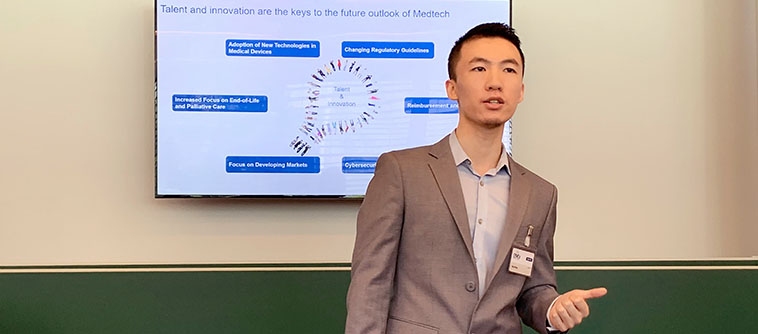
“A globally minded executive is not truly global if she or he is not a fan of Diversity & Inclusion (D&I),” said Roy Rong MD with characteristically surgical precision.
According to Roy, D&I awareness is no longer a talking point, but a must for today’s organizations. Cultural fluency enables a competitive advantage and research has shown that strong teams are those in which all members feel they are both visible and valued for the unique perspectives they can offer.
However, D&I cognizance is not necessarily an intrinsic awareness that individuals either have or do not have. Instead, it is a specific skill that requires foundational knowledge and then regular practice. In Rong’s case, as a qualified surgeon who chose to retrain in business, it was a subject introduced to him during his MBA.
“The group experience and the D&I course helped me understand that diversity is productivity, which was not something I sensed before. But now, when I recruit team members, the first question I ask myself is whether she or he will add something new and different to our current team,” he said.
Rong’s career path is one of high achievement and pragmatic shifts. Having completed his medical research fellowship at Harvard Medical School and worked as a urologist in both Germany and China for four years, he began pursuing a corporate career and realized something was missing from his skillset.
“I was working in a pharmaceutical company as a medical officer, and then as a marketing manager. I realized if I wanted to make a real impact on the business, my medical knowledge alone would not be enough. I needed to speak the business language. So I decided to look for a business course to improve myself,” he said.
In his current role as BU Head of Boston Scientific’s Pulmonary business where his team drives innovative solutions to help manage diseases of the airways and improve clinical outcomes for patients, Rong feels, despite the career change, that both his original vocational compulsion and diagnostic process remains intact.
“When I was a child, I wished to do something to help others keep healthy. So as both a doctor and a business leader in medtech, I am continuing to help the patients,” he said. “Also as a doctor, I used to have a process – I would diagnose the disease, develop possible solutions, and treat the patients. This is also applicable to my corporate role; I need to diagnose the business situation first, then come up with alternatives, and prescribe the treatment plan.”
Rong’s apparent ease with the transition from physician to business leader could lead one to believe the career shift was a seamless evolution for him. However, on this point, he is keen to set the record straight.
“Honestly, the intensity of the MBA is equivalent to a medical training. The biggest test is the 48-hour challenge. I found it really demanding both physically and mentally,” he recalled.
However, despite the trials and tribulations of the course, Rong believes the MBA experience changed his outlook as a person and as an executive for the better, not least because it opened his eyes to the importance of a diverse and inclusive teambuilding strategy.

